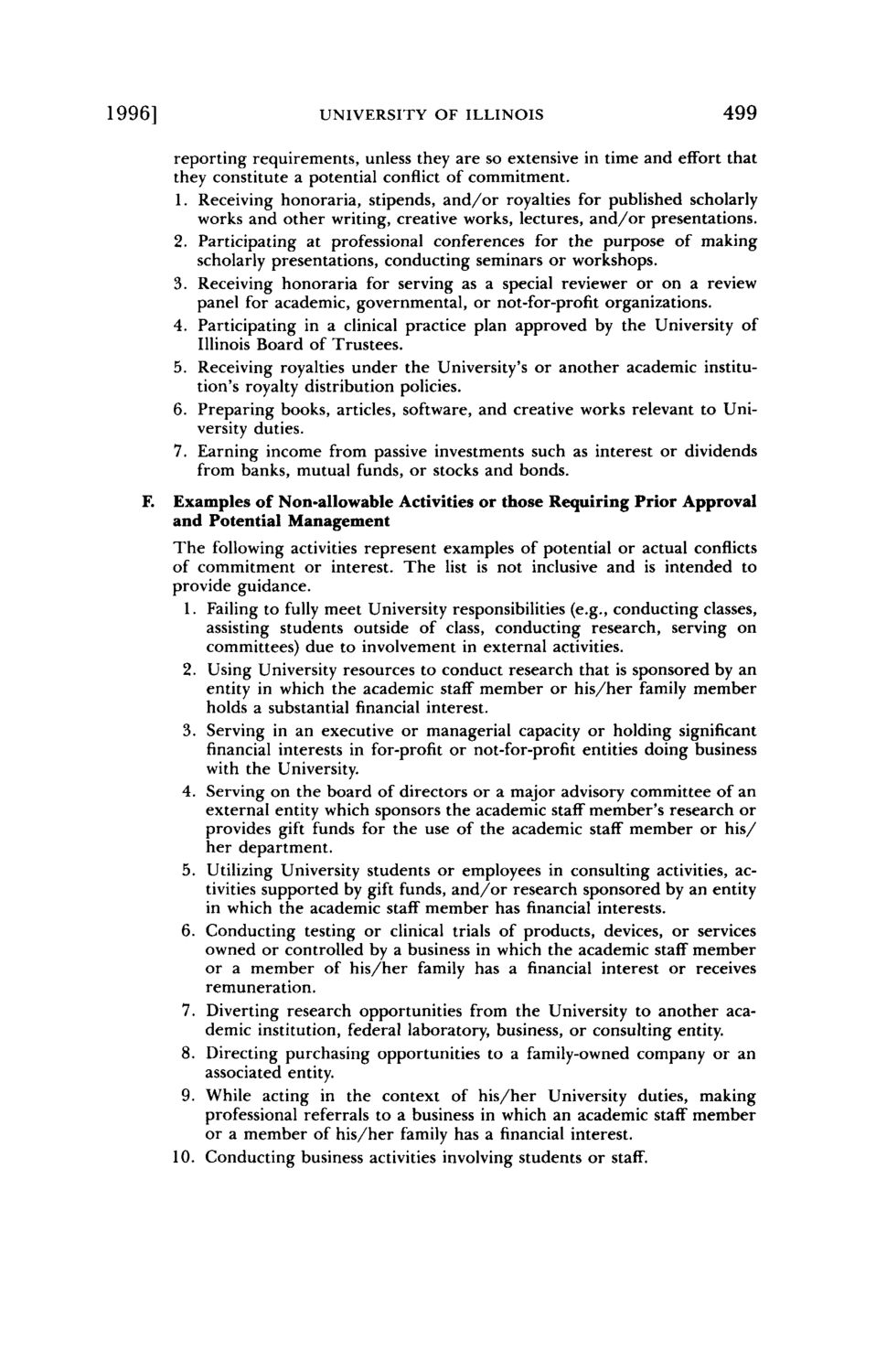| |
| |
Caption: Board of Trustees Minutes - 1994
This is a reduced-resolution page image for fast online browsing.

EXTRACTED TEXT FROM PAGE:
1996] UNIVERSITY OF ILLINOIS 499 reporting requirements, unless they are so extensive in time and effort that they constitute a potential conflict of commitment. 1. Receiving honoraria, stipends, a n d / o r royalties for published scholarly works and other writing, creative works, lectures, a n d / o r presentations. 2. Participating at professional conferences for the purpose of making scholarly presentations, conducting seminars or workshops. 3. Receiving honoraria for serving as a special reviewer or on a review panel for academic, governmental, or not-for-profit organizations. 4. Participating in a clinical practice plan approved by the University of Illinois Board of Trustees. 5. Receiving royalties under the University's or another academic institution's royalty distribution policies. 6. Preparing books, articles, software, and creative works relevant to University duties. 7. Earning income from passive investments such as interest or dividends from banks, mutual funds, or stocks and bonds. F. Examples of Non-allowable Activities or those Requiring Prior Approval and Potential Management T h e following activities represent examples of potential or actual conflicts of commitment or interest. T h e list is not inclusive and is intended to provide guidance. 1. Failing to fully meet University responsibilities (e.g., conducting classes, assisting students outside of class, conducting research, serving on committees) due to involvement in external activities. 2. Using University resources to conduct research that is sponsored by an entity in which the academic staff member or his/her family member holds a substantial financial interest. 3. Serving in an executive or managerial capacity or holding significant financial interests in for-profit or not-for-profit entities doing business with the University. 4. Serving on the board of directors or a major advisory committee of an external entity which sponsors the academic staff member's research or provides gift funds for the use of the academic staff member or h i s / her department. 5. Utilizing University students or employees in consulting activities, activities supported by gift funds, a n d / o r research sponsored by an entity in which the academic staff member has financial interests. 6. Conducting testing or clinical trials of products, devices, or services owned or controlled by a business in which the academic staff member or a member of his/her family has a financial interest or receives remuneration. 7. Diverting research opportunities from the University to another academic institution, federal laboratory, business, or consulting entity. 8. Directing purchasing opportunities to a family-owned company or an associated entity. 9. While acting in the context of his/her University duties, making professional referrals to a business in which an academic staff member or a member of his/her family has a financial interest. 10. Conducting business activities involving students or staff.
| |